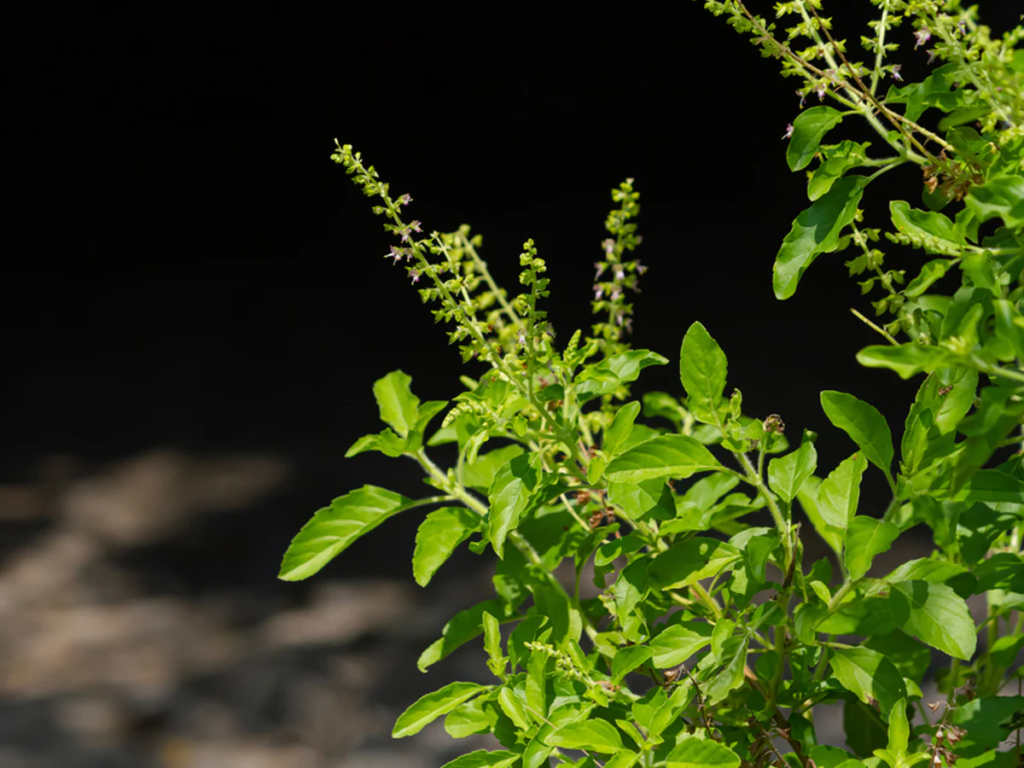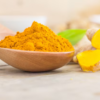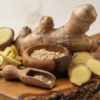Holy Basil (Tulsi): The Sacred Herb for Immunity and Wellness
Holy Basil (Tulsi): The Sacred Herb for Immunity and Wellness In the realm of traditional medicine, few herbs have earned as much reverence as Holy Basil, also known as Tulsi (Ocimum sanctum). Revered in India for thousands of years, Tulsi is often referred to as the “Queen of Herbs” or “The Sacred Plant.” This herb, with its rich spiritual significance and robust medicinal properties, offers a plethora of benefits for modern wellness. This blog delves into the history, benefits, and uses of Tulsi, shedding light on why this ancient herb remains a staple in holistic health practices today.

Historical and Cultural Significance
Tulsi holds a sacred place in Hindu culture, often found in households as a symbol of purity and devotion. According to Hindu mythology, Tulsi is considered a manifestation of the goddess Lakshmi and is revered for its spiritual and therapeutic properties. The plant is traditionally planted in a small garden or pot at homes, where it is tended to with care and devotion. Its presence is believed to bring prosperity, health, and peace to the household.
In Ayurvedic medicine, Tulsi is celebrated for its adaptogenic and healing qualities. Ayurveda, the ancient system of medicine originating from India, has utilized Tulsi for centuries to balance bodily functions and enhance overall health. It is considered one of the most versatile herbs in Ayurvedic practice, often used to treat a wide range of ailments.
Nutritional Profile
Tulsi is a powerhouse of essential nutrients, contributing to its impressive health benefits. The leaves of Tulsi are rich in:
- Vitamins: A, C, and K
- Minerals: Calcium, magnesium, and iron
- Antioxidants: Including flavonoids, phenolic acids, and essential oils
These nutrients work synergistically to support the body’s natural defenses, making Tulsi a valuable addition to a balanced diet.
Health Benefits
1. Immune System Support
One of Tulsi’s most well-known benefits is its ability to support the immune system. The herb contains potent antioxidants that help combat oxidative stress, which can weaken immune function. Tulsi’s essential oils, including eugenol, citronellol, and caryophyllene, possess antimicrobial properties that can help fight infections and support overall immune health.
Holy Basil (Tulsi): The Sacred Herb for Immunity and Wellness has shown that Tulsi can enhance the production of antibodies and increase the activity of white blood cells, which are crucial for defending against pathogens. Regular consumption of Tulsi can help reduce the frequency and severity of common illnesses, such as colds and flu.
2. Stress Reduction
Tulsi is classified as an adaptogen, a substance that helps the body adapt to stress and maintain balance. Adaptogens are believed to modulate the body’s stress response, reducing the impact of stress on mental and physical health. Tulsi helps regulate cortisol levels, the primary stress hormone, thereby promoting a sense of calm and well-being.
Studies have demonstrated that Tulsi can help reduce symptoms of anxiety and depression. It supports the body’s natural ability to cope with stress and helps improve overall mental clarity and emotional resilience.
3. Respiratory Health
Tulsi has been traditionally used to support respiratory health and treat respiratory conditions such as asthma, bronchitis, and coughs. Its anti-inflammatory and antimicrobial properties make it effective in soothing irritated respiratory tissues and fighting respiratory infections.
Tulsi’s essential oils can help clear congestion and promote easier breathing. Drinking Tulsi tea or using Tulsi-based steam inhalations can provide relief from symptoms associated with respiratory conditions and support overall lung health.
4. Digestive Health
Tulsi plays a significant role in supporting digestive health. It helps stimulate digestion, alleviate bloating, and relieve symptoms of indigestion. The herb has carminative properties, which means it helps reduce gas and bloating in the digestive tract.
Additionally, Tulsi has been shown to have a protective effect on the gastrointestinal lining, helping to prevent and heal ulcers. Its anti-inflammatory and antibacterial properties further contribute to maintaining a healthy digestive system.
5. Cardiovascular Health
Tulsi has several benefits for cardiovascular health. It helps lower blood pressure by relaxing blood vessels and improving circulation. The herb’s antioxidant properties help prevent oxidative damage to blood vessels, reducing the risk of heart disease.
Tulsi also helps balance cholesterol levels by reducing LDL (bad cholesterol) and increasing HDL (good cholesterol). Regular consumption of Tulsi can support overall heart health and reduce the risk of cardiovascular diseases.
How to Incorporate Tulsi into Your Daily Routine
Incorporating Tulsi into your daily routine can be both enjoyable and beneficial. Here are some popular methods:
1. Tulsi Tea
Tulsi tea is one of the most common and effective ways to enjoy the benefits of this herb. To prepare Tulsi tea, steep a few fresh or dried Tulsi leaves in hot water for about 5-10 minutes. You can add honey or lemon to enhance the flavor. Drinking Tulsi tea regularly can help boost your immune system and reduce stress.
2. Tulsi Supplements
Tulsi is available in various supplement forms, including capsules, tablets, and extracts. These supplements are a convenient option for those who prefer a more concentrated dose of the herb’s benefits. Always choose high-quality supplements from reputable sources to ensure efficacy and safety.
3. Tulsi Essential Oil
Tulsi essential oil can be used for aromatherapy or topical applications. Diffusing Tulsi oil in your home can promote relaxation and support respiratory health. For topical use, mix a few drops of Tulsi oil with a carrier oil and apply it to your skin. Be sure to do a patch test first to check for any sensitivity.
4. Tulsi in Cooking
Tulsi leaves can be added to various dishes for a unique flavor and added health benefits. They can be used in soups, salads, and curries. Fresh Tulsi leaves have a distinct taste that can enhance the flavor profile of many dishes.
Potential Side Effects and Precautions
While Tulsi is generally safe for most people, it is important to be aware of potential side effects and take necessary precautions. Some individuals may experience mild gastrointestinal discomfort or allergic reactions. Pregnant and breastfeeding women should consult with a healthcare provider before using Tulsi supplements, as high doses may not be advisable.
Additionally, Tulsi can interact with certain medications, including blood thinners and diabetes medications. If you are taking any medications or have underlying health conditions, it is best to consult with a healthcare professional before incorporating Tulsi into your routine.
Conclusion
Holy Basil (Tulsi): The Sacred Herb for Immunity and Wellness is more than just a sacred plant; it is a remarkable herb with a rich history and a multitude of health benefits. From enhancing immune function and reducing stress to supporting respiratory and digestive health, Tulsi has proven to be a versatile and valuable addition to modern wellness practices.
As we navigate the demands of contemporary life, incorporating Tulsi into our daily routines can offer a natural, time-honored approach to maintaining balance and promoting overall well-being. Whether enjoyed as tea, in supplement form, or through essential oils, Tulsi continues to stand the test of time as a treasured ally in our quest for health and vitality.









Leave a reply